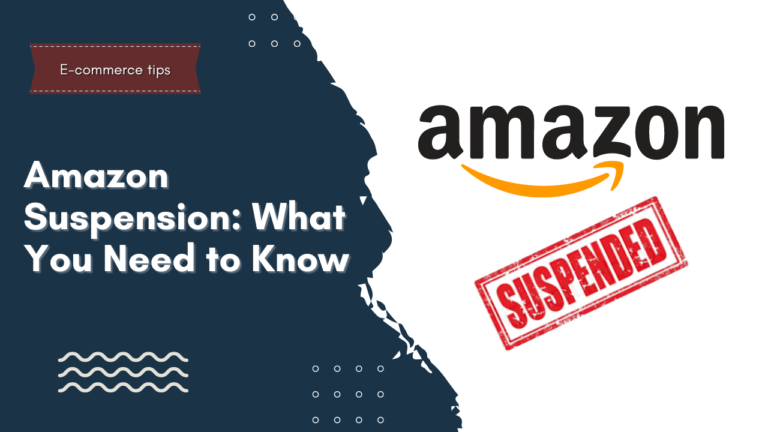How Amazon Go is Revolutionizing Retail
In recent years, the retail industry has undergone a significant transformation, with technological advancements driving major changes in the way consumers shop. One such concept that captured the imagination of both customers and retailers alike is Amazon Go, a retail store that deviates from the norm in favor of cashier-less transactions.
Through this article, we’ll dive deep into the intricacies of Amazon Go and how it is revolutionizing the retail landscape. From the technology behind this cashier-less store to the seamless shopping experience it offers, we’ll explore the many ways in which Amazon Go is reshaping the future of retail.
The concept of Amazon Go
Whether it’s shopping in-store or online, most customers value convenience above all else. Knowing this, Amazon created a new chain of retail stores called Amazon Go intending to simplify the consumer’s buying experience.
The concept of Amazon Go revolves around a cashier-less store, where customers can walk in, pick up the items they need, and simply walk out without having to go through traditional checkout counters. The entire shopping experience is powered by Just Walk Out (JWO) technology.
JWO incorporates computer vision, sensor fusion, and deep learning algorithms, all of which work seamlessly together to achieve a cashier-less experience. As customers enter the store, a network of cameras and sensors placed strategically throughout the premises tracks their movements and item selections.
This real-time data is then fed into powerful algorithms that identify and associate products with specific customers accurately. The combination of these technologies enables Amazon Go to create a seamless shopping experience, leaving customers in awe of its efficiency and convenience.
How Amazon Go is reshaping the retail landscape
The success of Amazon Go has sparked a new era of possibilities for the retail industry. It’s not just about the convenience of cashier-less shopping; it’s about the transformative impact of technology on the entire retail ecosystem.
- Smarter inventory management: Amazon Go’s technology allows for real-time inventory tracking. This data-driven approach helps retailers optimize their inventory, reducing waste and ensuring products are always in stock.
- Personalized shopping experiences: As technology becomes more advanced, retailers can leverage customer data to offer personalized product recommendations, discounts, and loyalty programs, enhancing customer loyalty.
- Integration of augmented reality: The future of retail might see the integration of augmented reality (AR) to enhance the in-store experience. Customers could virtually try on clothes, test out products, and visualize how items fit into their homes.
- Improved supply chain efficiency: With real-time data and analytics, retailers can streamline their supply chain, improving logistics, and reducing delivery times, ultimately benefiting both businesses and customers.
Why should businesses care about Amazon Go?
Amazon has always prioritized customer experience above all else, and it’s evident that its approach has contributed to its massive success. Businesses, whether small or large, can learn a thing or two about how Amazon leverages technology to continuously meet the needs/expectations of their buyers.
So, why should businesses pay attention to Amazon’s new strategy? For one, long checkout lines and cumbersome payment methods can deter customers. By streamlining the checkout process, businesses can enhance customer satisfaction and encourage repeat purchases.
Since we’re living in a post-pandemic world, contactless solutions have gained significant importance. Much like Amazon Go, businesses that invest in contactless payment options and touchless kiosks are sure to experience a significant boost in consumer trust and brand confidence.
While technology and convenience are the two main highlights of Amazon Go, they also leverage data for strategic decision-making. The store’s systems collected vast amounts of data on customer behavior, enabling Amazon to understand preferences, optimize inventory, and offer personalized recommendations.
With the help of AI and machine learning applications, businesses can further analyze information to predict buying patterns and optimize inventory management. These technologies can also be applied to improve customer service through chatbots and virtual assistants.
Embracing a culture of innovation is a powerful way to drive growth and scale your business to new heights, and Amazon Go is a prime example.
What are the challenges that Amazon Go faces?
Despite brimming with technology, Amazon Go stores are not without their faults. When we take a closer look, a lot of challenges arise that put an asterisk on the store’s future success. These are:
1. Complex technology infrastructure
The technology required to operate Amazon Go stores is highly sophisticated. It involves a network of cameras, sensors, and computer vision algorithms to track customer movements and purchases accurately. Implementing and maintaining such an infrastructure can be complex and costly.
2. High initial setup costs
Setting up an Amazon Go store demands significant upfront investments in terms of hardware, software, and personnel training. This could deter smaller retailers or startups from adopting the technology.
3. Data privacy concerns
With a plethora of cameras and sensors constantly monitoring customers, there are valid concerns about data privacy and security. Amazon must ensure that customer data is protected and used responsibly to address potential privacy issues.
4. Limited product variety
Amazon Go stores typically offer a curated selection of products, focusing on ready-to-eat meals, snacks, and basic necessities. The absence of a traditional checkout process may limit the feasibility of using this technology in larger stores with more extensive product offerings.
5. Shoplifting and errors
While Amazon’s technology is advanced, there is still the possibility of errors in item tracking and billing. Instances of shoplifting, accidental product swaps, or technical glitches could lead to customers being charged incorrectly or losses for the retailer.
6. Integration challenges
Integrating Amazon Go technology with existing retail systems and inventory management can be complex and time-consuming, especially for established retailers with legacy systems.
7. Limited accessibility
As of now, Amazon Go stores are only available in select locations, primarily in urban areas. This limited geographical presence may restrict accessibility for many potential customers.
8. Dependency on technology reliability
The seamless functioning of Amazon Go stores relies heavily on the consistent performance of the underlying technology. Any technical issues or outages could disrupt the shopping experience and lead to customer dissatisfaction.
Despite these challenges, Amazon Go represents a groundbreaking step in the evolution of retail technology. As technology improves and becomes more widespread, many of these challenges are likely to be addressed or mitigated, further revolutionizing the retail experience.
Conclusion
Amazon Go has undoubtedly reshaped the retail landscape, revolutionizing the way we shop and experience brick-and-mortar stores. The blend of innovative technologies, seamless checkout, and personalized experiences has set new standards for customer expectations. As traditional retailers adapt to this evolving landscape, the future of retail promises to be exciting and full of possibilities.
So, as we look ahead, we can expect even more transformative advancements in the retail industry, all inspired by the trailblazing approach of Amazon Go.
Managing the financial health of your business is crucial to its success. If you need any help with expert bookkeeping services, our team is ready to assist you. Feel free to fill out the form below, and we’ll get in touch with you as soon as possible.








